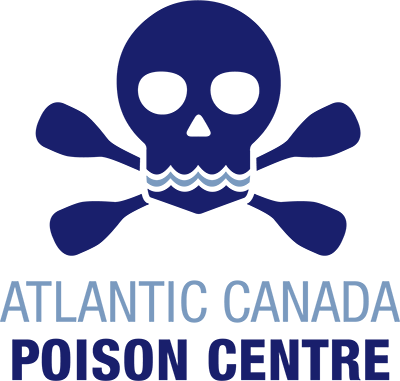
Atlantic Canada Poison Centre
Antidote Kit Manual
Activated Charcoal
Indications
- Not to be administered routinely in the management of poisoned patients
- May be considered if a patient has ingested a potentially toxic amount of a substance (known to be adsorbed to AC ) up to 4 hours previously. Ideally within 1 hour.
- The routine use of AC needs to be weighed against the ability of the patient to protect their own airway in the event of emesis and AC aspiration.
Contraindications: Risk of airway compromise, Ingestions of caustics, Hydrocarbon ingestions, Ileus or mechanical bowel obstruction
Dosage
- Children up to 1 year: 1 gram/kg
- Children 1-12 years: 1-2 gram/kg to a maximum of 50 grams
- Adolescents and Adults: 1-2 gram/kg to a maximum of 100 grams
For patients who have had GASTRIC BYPASS surgery, the dose of AC must be adjusted to the amount/volume that patient can tolerate. It may mean that only 15 mls of plain AC can be given every 30 minutes.
Administration
AC is given as a slurry (pre mixed formula or with water added) orally or by nasogastric tube.
Compatibility, Stability
Aqueous AC can be chilled and/or mixed with numerous other liquid products that may help increase it’s palatability. Such as juice, chocolate milk, soda pop or ice.
Potential Hazards of Administration
- Vomiting, Abdominal Bloating, Constipation, Diarrhea, Aspiration
Miscellaneous
Repeated doses may be used to enhance elimination. Contact your poison centre for more information.
Activated Charcoal should not be used in single ingestions of: (Acids/Alkalis, Alcohols (all types), Borates, Bromide, Cyanide, Fluoride, Hydrocarbons, Lindane, Lithium, Metals (all types), Organophosphates, Potassium (data often ambiguous)
The administration of cathartic (ie; sorbitol) alone has no role in the management of a poisoned patient. Based on available data, the routine use of cathartic in combination with activated charcoal is not endorsed. If a cathartic is used, it should be limited to a single dose in combination with activated charcoal. The addition of sorbitol to activated charcoal may lead to an increased incidence of adverse effects, especially in children. These include induced vomiting, electrolyte imbalances and dehydration.


